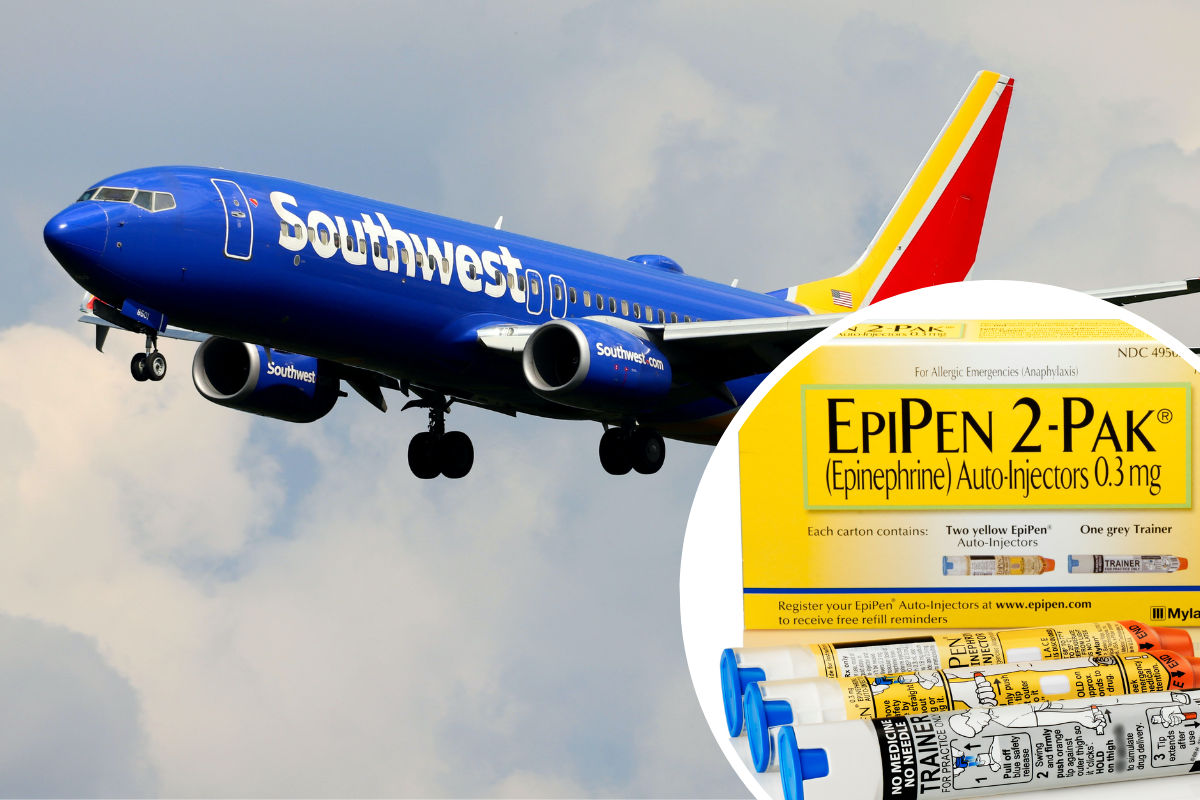
Three U.S. Senators have written to FAA administrator Michael Whitaker to urge the agency to force airlines to carry EpiPen autoinjectors in their emergency medical kits, arguing that ‘good fortune’ has so prevented passengers from dying from a mid-flight anaphylactic shock.
EpiPens contain a life-saving dose of Epinephrine, which can quickly reverse the effects of anaphylactic shock and, importantly, can be administered by laypeople without any prior medical training.
It’s past time to require airlines to carry epinephrine auto-injectors in their in-flight emergency medical kits.
— Chuck Schumer (@SenSchumer) December 12, 2023
I’m standing with @SenWarren and @SenMarkey to call on the FAA to take action: pic.twitter.com/zoVF7Ys2Ph
At present, however, the Federal Aviation Administration only requires airlines to carry single-dose vials of Epinephrine, which must be administered by a trained medical professional with a syringe. The current rules haven’t been updated since 2004.
Some airlines voluntarily carry EpiPens or the generic equivalent in their medical kits, but many carriers, including Southwest Airlines, don’t. Even airlines that do carry EpiPens could stop at any moment.
“Having an epinephrine auto-injector available is especially crucial in a setting like an airplane, where emergency medical personnel may not be present or immediately available,” wrote Senators Elizabeth Warren, Chuck Schumer and Edward Markey in their open letter.
The Senators noted that in many onboard emergency medical incidents involving a severe allergic reaction, passengers had the ‘good fortune’ of having a medically trained seatmate onboard who could administer epinephrine from a single-dose vial.
But they warned: “We cannot continue to rely on good fortune to protect the 2.9 million passengers on every one of the 45,000 daily airline flights in the United States”.
“The glaring cap in (the) FAA’s regulations disregards the widely-accepted guidance by medical professionals who stress the importance of epinephrine auto-injectors in treating anaphylaxis and puts airline passengers at risk,” the letter continued.
In April, Lindsey Ulin, a resident physician in the Department of Internal Medicine at Brigham and Women’s Hospital in Boston, wrote to Southwest Airlines urging the carrier to start carrying EpiPens after she suffered a life-threatening allergic reaction on one of its flights.
Thankfully, Lindsey was saved by another physician who happened to be on the flight.
Following the enactment of the FAA Reauthorization Act of 2018, the Aerospace Medical Association recommended that EpiPens be included in the mandatory contents of an onboard medical kit, but despite commissioning the review, the FAA failed to create a rulemaking to make this recommendation a reality.
Earlier this year, the FAA said making changes to the contents of inflight emergency medical kits was not a ‘priority’ for the agency.
Warren, Schumer and Markey have, however, called on the FAA to reconsider their position and have demanded a briefing on the matter early in the New Year.
Related
Mateusz Maszczynski honed his skills as an international flight attendant at the most prominent airline in the Middle East and has been flying ever since... most recently for a well known European airline. Matt is passionate about the aviation industry and has become an expert in passenger experience and human-centric stories. Always keeping an ear close to the ground, Matt's industry insights, analysis and news coverage is frequently relied upon by some of the biggest names in journalism.







